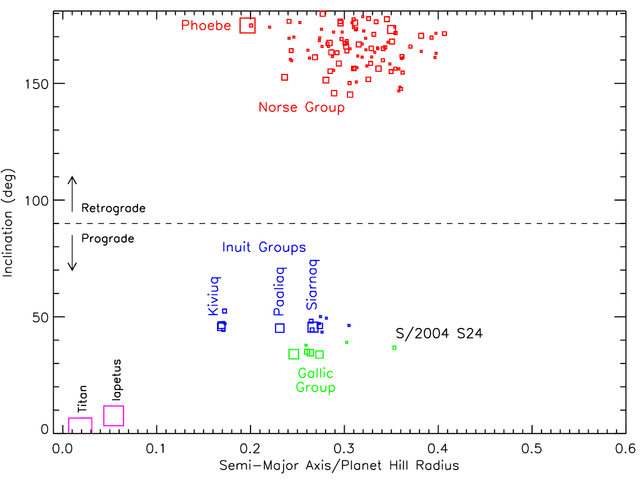Saturn's_Norse_group_of_satellites
Norse group
Category of satellites of Saturn
The Norse group is a large group of retrograde irregular satellites of Saturn. Their semi-major axes range between 12 and 27 Gm, their inclinations between 136° and 178° and their eccentricities between 0.06 and 0.63. Unlike the Inuit and Gallic groups, the orbital parameters are widely dispersed and the group is likely to be composed from a number of subgroups with more homogeneous orbital and physical parameters. The International Astronomical Union (IAU) reserves names taken from Norse mythology (mostly giants) for these moons. The exception is Phoebe (Greek mythology), the largest, which was discovered long before the others.

The discovery of 17 new moons in this group was announced in October 2019. A team led by Scott S. Sheppard using the Subaru Telescope at Mauna Kea discovered 20 new moons, each about 5 kilometres (3.1 mi) in diameter. 17 of these are thought to fit into the Norse group. One of these is the most distant moon of Saturn. A public naming contest for these moons was announced, restricted to names from Norse mythology.[1] Ten of these moons received official names in August 2022.[2]
The members of the group are (in order of increasing distance from Saturn according to JPL mean orbital elements):[3]